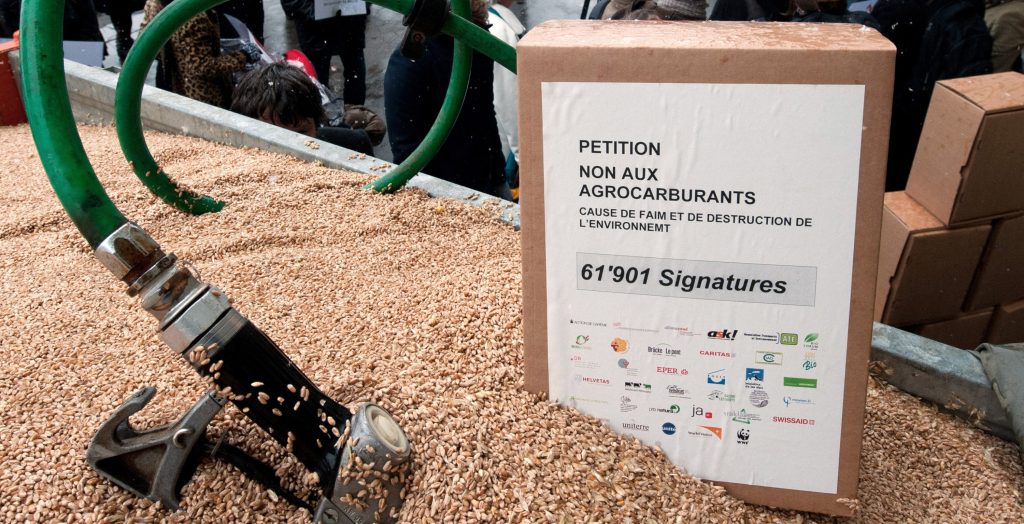Brussels, 7 December 2007 – A leaked copy of a new draft law to regulate the use of agrofuels (biofuels) in Europe reveals that the EU will fail to protect the environment and the world’s poor, warned Friends of the Earth Europe today.
Adrian Bebb, Agrofuels Campaign Coordinator for Friends of the Earth Europe said: “Europe’s plan for how to produce agrofuels does nothing to protect the world’s poor and pays only scant attention to protecting the environment. This proposal shows that the EU will not be able to guarantee the sustainable production of fuels from crops. Now is the time to abandon this folly and introduce real solutions to the climate crisis.”
Friends of the Earth Europe has obtained a leaked copy of the proposed Renewables Directive [1], due to be launched early in 2008. The Directive will introduce into EU law a mandatory target that all fuels for transport contain at least 10 percent agrofuels by 2020, and sets out a plan on how to achieve this “sustainably”.
Friends of the Earth Europe criticises the draft Directive as it:
- Fails to acknowledge the growing international concerns about the impact of agrofuels on the environment and food security and presses on with a mandatory target.[2]
- Does not sufficiently address the knock-on effect of rising food prices.
- Will not prevent agrofuel production from pushing other farming activities (e.g. cattle ranching or other crops) into rainforests or other important eco-systems. The Commission proposes to just monitor the situation.
- Provides no criteria to protect people in developing countries from the negative impacts of agrofuel production. Land disputes, forced evictions, human rights abuses and poor working conditions occur frequently in many countries producing crops for Europe. The United Nations warned earlier this year that agrofuels could be “especially harmful to farmers who do not own their own land, and to the rural and urban poor who are net buyers of food.”[3]
- Introduces only limited “sustainability criteria” aimed at preventing deforestation and damage to wetlands but ignores other important ecosytems such as threatened biodiversity-rich savannahs (for example, the Brazilian Cerrado). The criteria are only applicable to crops used as fuels in transport but not for the same fuels used to produce electricity.[4]
- Prevents EU member states from introducing stronger criteria at a national level.
The European Commission is expected to define the greenhouse gas savings that an agrofuel would have to meet – compared to fossil-based fuels – in order to be supported by the EU. However the leaked draft is still missing this figure, indicating continued internal disagreement within the Commission.
“Using crops to produce fuel is a false solution to climate change – the real solutions lie in forcing car companies to produce cleaner cars, improving public transport and making our towns and cities more energy efficient,” Mr Bebb added.
***
A Friends of the Earth Europe position paper on agrofuels can be downloaded at:
http://www.foeeurope.org/agrofuels
Notes:
[1] www.foeeurope.org/agrofuels/documents/Draft_RE_Directive.pdf
[2] A paper this week by the International Food Policy Research Institute concludes that agrofuel production “currently adversely affects the poor through price-level and price-volatility effects” and that if countries implemented their agrofuel targets then there will be a resulting decrease in food-calorie consumption across all world regions.
(http://www.ifpri.org/media/20071204agm.asp)
For more warnings see: www.foeeurope.org/agrofuels/warnings.html
[3] http://esa.un.org/un-energy/pdf/susdev.Biofuels.FAO.pdf
[4] For example, more palm oil is used in electricity production in Europe than in cars.







